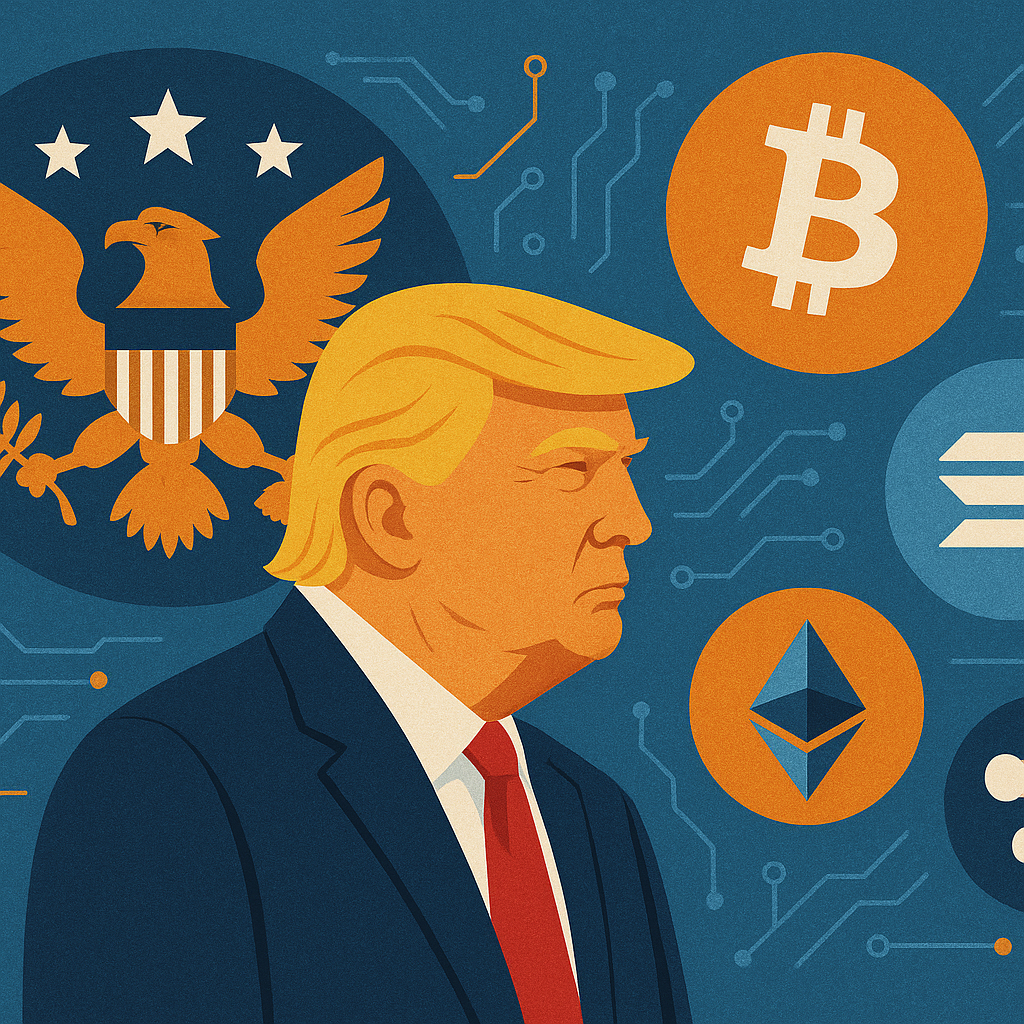Trump’s Bold Crypto Pivot: U.S. Digital Asset Reserve Proposal Could Reshape Global Market Dynamics
In a move that could redefine the regulatory and investment landscape for digital assets, former President Donald Trump has proposed the creation of a U.S. cryptocurrency reserve. The initiative would include a diverse basket of leading digital currencies—namely Bitcoin (BTC), Ethereum (ETH), Solana (SOL), Cardano (ADA), and Ripple (XRP)—marking an unprecedented government-level endorsement of crypto.
The proposal, revealed via policy outlines and reported on platforms such as Wikipedia and New York Magazine, positions the United States as a potential frontrunner in formalizing crypto as part of national reserves. This follows rising calls within the global financial community for nations to adopt more robust strategies to engage with the crypto economy.
Why This Matters for Investors
Cryptocurrency markets have long operated on the fringes of institutional legitimacy, with regulatory uncertainty often casting shadows over long-term adoption. Trump’s proposal signals a turning point: it’s not just about regulation anymore—it’s about strategic integration.
The creation of a U.S. cryptocurrency reserve would mark a major policy shift. It implies that digital assets are moving from speculative instruments to recognized stores of value at the national level. That’s bullish for mainstream adoption, and especially favorable for leading cryptocurrencies.
From an investor’s perspective, the move could act as a catalyst for institutional inflows, market stabilization, and clearer regulatory frameworks. As with gold reserves, a crypto reserve would inherently lend credibility to digital assets, influencing sentiment both on Wall Street and Main Street.
Deeper Dive: What Would a U.S. Crypto Reserve Look Like?
Although still in its conceptual stage, the reserve would likely function under the oversight of the U.S. Treasury or a new regulatory agency. Here’s what’s currently being discussed:
- Diversified Holdings: Bitcoin and Ethereum would anchor the reserve due to their market dominance. Inclusion of altcoins like Solana, Cardano, and Ripple reflects acknowledgment of innovation and utility in blockchain ecosystems.
- Strategic Purpose: The reserve would aim to protect national economic interests, hedge against inflation and fiat volatility, and maintain competitiveness in a blockchain-driven future.
- Private-Public Partnerships: Trump’s model hints at collaboration with major U.S.-based crypto firms, potentially boosting firms like Coinbase (NASDAQ: COIN), Kraken, and Ripple Labs.
Experts from Bloomberg and New York Magazine note that while the proposal faces bipartisan scrutiny, it has opened the door for long-overdue national crypto policy discussions.
Future Trends to Watch
- Policy Momentum: With 2024 presidential elections looming, expect increased crypto-related debate among candidates.
- Institutional Adoption: If the U.S. signals support, expect a domino effect from hedge funds, pension funds, and sovereign wealth vehicles.
- Regulatory Restructuring: This could accelerate efforts by the SEC and CFTC to provide consistent guidance on digital asset classification and oversight.
- Geopolitical Implications: Countries like El Salvador and the UAE already integrate crypto in state strategy—will the U.S. join them?
Key Investment Insight
Trump’s proposal acts as a psychological and strategic inflection point for crypto markets. If the U.S. does adopt a crypto reserve, Bitcoin and Ethereum could see sustained institutional accumulation, while altcoins mentioned in the proposal may gain long-term credibility.
Investors should monitor regulatory developments closely and consider diversified exposure to digital assets with strong network effects and utility. ETFs and crypto-related equities could also benefit from renewed investor confidence.
Stay Ahead with MoneyNews.Today
As the world’s largest economy teeters on the edge of embracing cryptocurrencies as part of its monetary arsenal, investors need clear, fast, and reliable insights. Count on MoneyNews.Today to break down the headlines that move markets.





